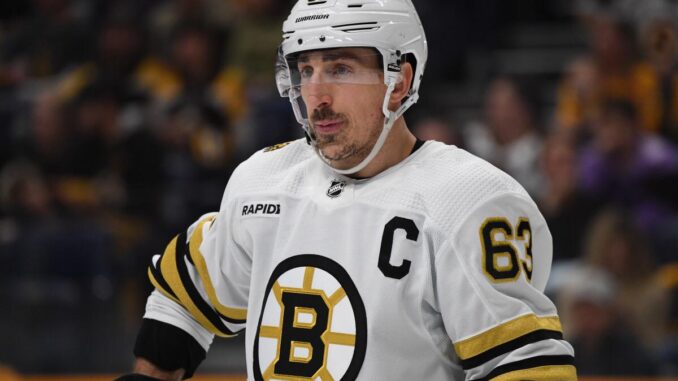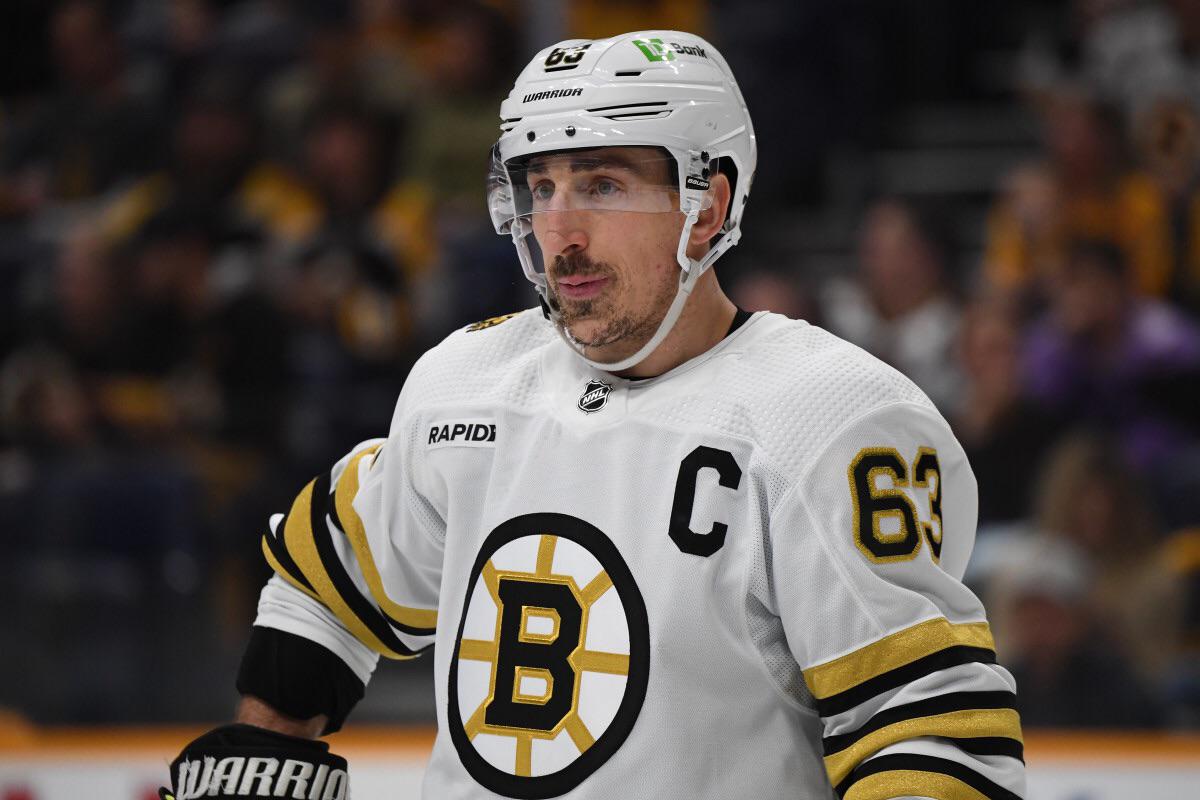
Two Months On: The Lingering Sting of the Bruins’ Captain Trade
BOSTON, MA – Two months have passed since the Boston Bruins sent shockwaves through the NHL, and more specifically, through the heart of their passionate fanbase, with the controversial trade of their long-standing captain, Brad Marchand. What was touted by the front office as a strategic move for future cap flexibility and a retooling of the roster has, for many, become a gaping wound, leaving a void not just in the team’s on-ice performance, but in its very identity and spirit.
The trade, which saw Marchand, a cornerstone of the franchise for over a decade, shipped off to a Western Conference contender for a package of draft picks and a promising but unproven prospect, was met with immediate and widespread dismay. While the official press release spoke of “difficult but necessary decisions” and “embracing a new era,” the sentiment among the faithful was far more visceral: a sense of betrayal, confusion, and profound loss.

Marchand wasn’t just a player; he was the embodiment of the Bruins’ recent success, a fiery competitor, a perennial All-Star, and, crucially, the team’s undisputed emotional leader. His grit, his clutch performances, and his unique blend of skill and agitation had endeared him to a generation of Bruins fans. He bled black and gold, and his presence on the ice, whether scoring a crucial goal or drawing a penalty, was a constant source of energy and belief. To many, he was the last true link to the team’s recent Stanley Cup glory and a symbol of the “Bruins Way”—a blend of toughness, skill, and unwavering commitment.
The initial shock has now settled into a persistent ache. The Bruins, while not entirely floundering, have struggled to find consistent chemistry and leadership in Marchand’s absence. The new pieces, while potentially valuable in the long run, haven’t immediately filled the immense shoes left behind. The team’s power play, often a Marchand-led spectacle, has sputtered, and the intangible spark that often ignited their comebacks or sustained their dominant stretches seems to have dimmed.
“It just doesn’t feel right,” lamented Sarah Chen, a season ticket holder for over 20 years, outside the TD Garden after a recent loss. “Every time they’re in a tough spot, I still instinctively look for Marchy to make something happen. Then I remember. It’s like a piece of the team is missing. They traded away not just a great player, but part of their soul, part of their class.”
Indeed, the “class” aspect is a recurring theme among disgruntled fans. Marchand, despite his occasional on-ice antics, matured into a respected captain, a vocal advocate for his teammates, and a significant presence in the Boston community. His leadership extended beyond the scoresheet, fostering a strong locker room culture and serving as a mentor to younger players. The perception that such a figure could be so readily discarded for future assets has left a bitter taste.
“You build a team around guys like Brad,” said lifelong fan Mark Johnson, shaking his head. “He was the heart and soul. You don’t just trade that away for picks. What message does that send to the other guys? What message does that send to us, the fans who invest so much emotion in this team?”
From the front office’s perspective, the decision was likely rooted in the harsh realitiesf the salary cap and the desire to avoid a prolonged rebuild. Marchand’s age and substantial contract, combined with the need to integrate younger talent, were undoubtedly factors. General Manager Don Sweeney, in a rare post-trade interview, reiterated the organization’s commitment to long-term competitiveness. “These are incredibly difficult decisions, especially when it involves a player of Brad’s caliber and importance to our franchise,” Sweeney stated. “But we have a responsibility to ensure the sustained success of this organization for years to come. This move, while painful in the short term, provides us with the flexibility and assets to build a stronger, younger core.”

However, for many fans, the long-term vision feels abstract when compared to the immediate, tangible loss. They watched Marchand grow from a feisty rookie to a respected leader, and the bond forged over years of shared victories and defeats is not easily severed by a cold, calculated transaction. The emotional investment of a fanbase is a powerful, often irrational force, and the Bruins’ management seems to have underestimated its depth in this instance.
As the season progresses, the performance of the new acquisitions and the development of the draft picks acquired in the trade will be under intense scrutiny. Only time will tell if the Bruins’ gamble pays off and if a new generation of players can forge the same kind of connection with the fanbase that Marchand did. But for now, two months after the fateful decision, the echoes of “We want Marchy!” still resonate in the stands, a testament to the enduring legacy of a captain whose departure continues to haunt the Boston faithful. The trade didn’t just move a player; it shifted the very ground beneath the Bruins’ identity, and the tremors are still being felt.
Leave a Reply